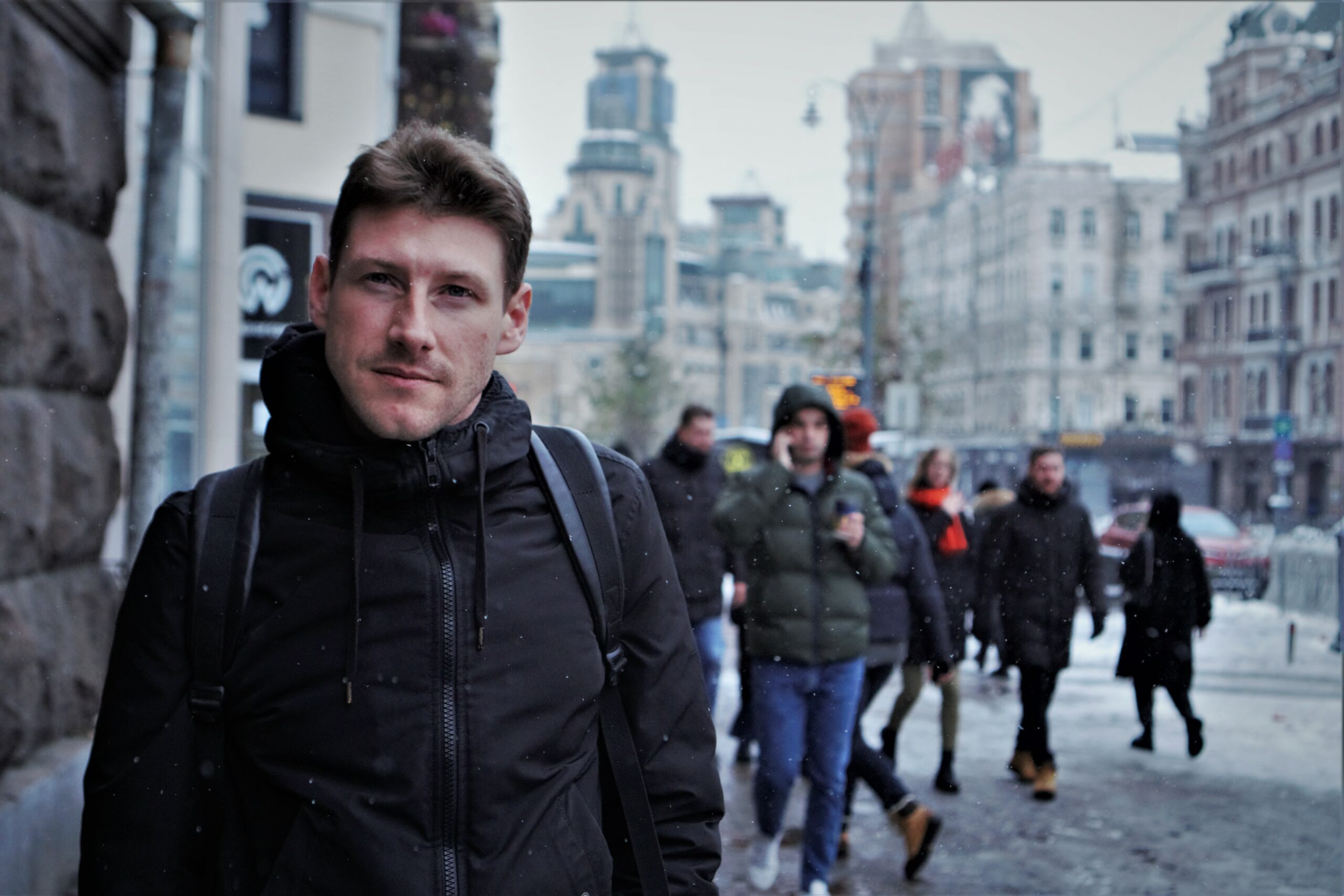Meet the Activists Arming Leftists on Ukraine’s Frontlines
With equipment in short supply, groups are plugging the gaps.
by Volodya Vagner
12 December 2022

When Vladimir Putin began his full-scale invasion of Ukraine in February, many Ukrainian leftists took up arms in defence of their country. However, proper equipment was in short supply. To plug the gaps, a group of activists with backgrounds in antifascist and anarchist movements, student unions and left publishing launched Operation Solidarity. Their aim was to gather gear from abroad to help equip their comrades on the frontlines.
The project has now consolidated under the name Solidarity Collectives. Earlier this winter in Kyiv, Volodya Vagner met with Sergey Movchan, one of the people running the project, to hear his reflections on their work and to get his perspective on what might happen from here.
Solidarity Collectives is a network of groups not only in Ukraine, but also places like Dresden, Berlin and Warsaw. We have a big warehouse in Poland, where people gather packages from the rest of Europe and send them on to those of us here in Ukraine. Within the country, we are mostly based in Lviv and Kyiv. In Kyiv we have people responsible for communication with our comrades at the front, gathering requests from them. We order things here or if it’s stuff that’s hard to find in Ukraine, we ask comrades in Europe to buy it. We also cooperate with local activists on the ground, as well as trade union leaders, especially in healthcare, mining and the railways, who also have their own networks.
Our main focus is on military aid, to help our comrades on the frontlines. We generally don’t support any armed units as such, but specific people, comrades at the front. Originally there were specific leftist units, but people have now mostly moved on to other volunteer battalions or regular units of the Ukrainian Armed Forces, mostly because they wanted to go to the frontlines, and that was the easiest way to get there.
In order to determine who to support, we use a framework of “anti-authoritarianism” – i.e. we offer support to libertarian leftists, anarchists, antifascists, and anyone who is part of this wider movement. We also support trade unionists, which, for me, is important. While our own comrades received a lot of help from the beginning, and are now asking for more specific stuff, like cars and drones, trade unionists don’t have the same networks, social capital or money, and still need really basic stuff.
We’ve also created a humanitarian department, through which we mainly supply hospitals, like in the city of Kryvyi Rih. This hospital is very important because it receives the injured from the frontlines, soldiers and displaced people. It needs everything. Our connection to this hospital goes back to a labour dispute there a few years ago, during which the Social Movement, a Ukrainian socialist organisation, supported protesting staff there. So, in a way, this is also part of a long-term relationship with them, which is important, because I know very well that once the war is over, they will have lots of problems to deal with.
One thing I always need to explain to comrades abroad is the relevance of the far right in the context of the war. Is it growing stronger because of the war? Probably, yes. But compared to 2014, when many saw these groups as the heroes of the war, they no longer have a monopoly on this title. Back then it was all about their units: Right Sector, Donbass, Aydar, Azov. Now, it’s all about the Armed Forces of Ukraine – its reputation is really high.
Once the war is over, there will be huge competition between fighters from different political backgrounds and groups in the fight for influence and for different versions of Ukraine. I think the next parliament will be full of people dressed in camouflage. That’s why it’s important to show that leftists are also defending Ukraine, fighting against the invasion, and making possible a common future for all of us. Without that, we have no chance. That’s why it’s important for us to create bridges which will be useful in the future. We don’t introduce ourselves saying, “Hello, we are anarchists and Marxists, we want to overcome the state one day, but today we are protecting it.” But equally, everyone can see our social media, where we explain our perspectives with other words. We aren’t hiding our ideas.
Much depends on developments on the battlefield, and no one knows how the war will end. As I see it, if Ukraine wins, it will be Volodymyr Zelenskyy’s victory: he will be the hero, and his party will have a majority. But if we lose, and lose significant territories, it will prompt a revanchism led by the far right. That’s why I say to those who are afraid that if Ukraine wins, the far right will gain popularity, actually, the opposite is true. If we don’t want to see a huge far right movement on Ukrainian streets, arguing that we were betrayed by Zelenskyy and Ukrainian officials, we should support Ukraine. With Zelenskyy relying on the West, he needs to at the very least uphold a veneer of democracy and human rights. If Zelenskyy is victorious, and becomes the hero of the war, I think the democratic process stands a chance in Ukraine. Otherwise, the situation will get much worse.
Volodya Vagner is a freelance journalist based in Sweden, covering culture and politics.


